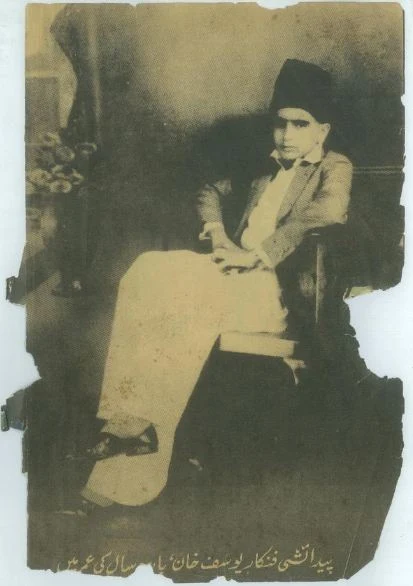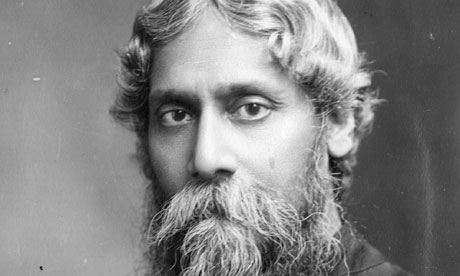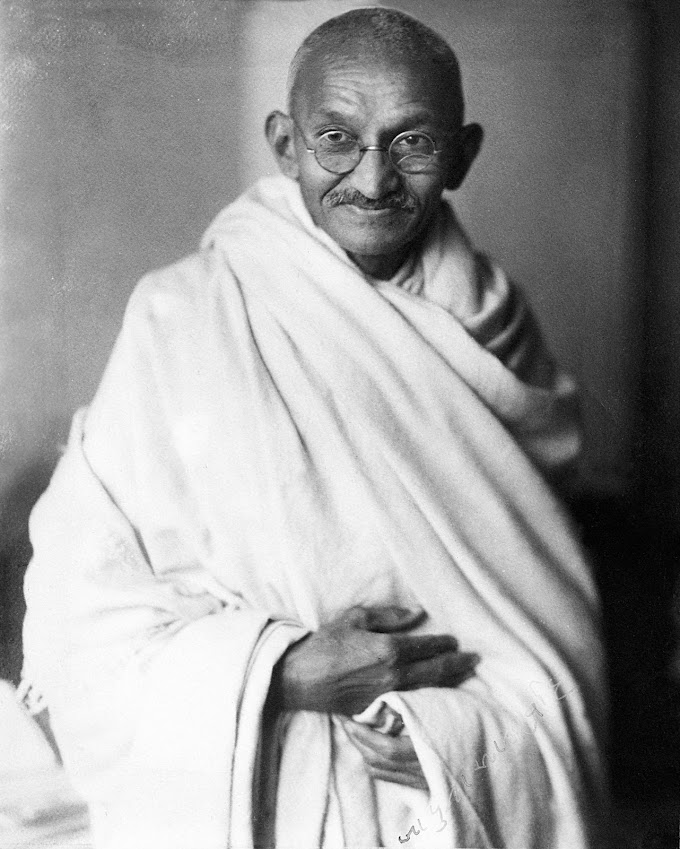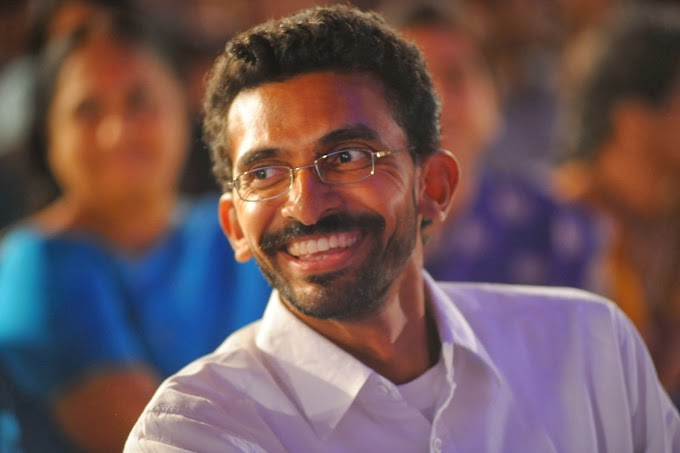Dilip Kumar (born 11 December 1922, as Muhammad Yousuf Khan) is an Indian film actor. He debuted as an actor in the movie Jwar Bhata (1944), produced by Bombay Talkies.
Dilip Kumar was born as Muhammad Yousuf Khan on 11 December 1922 in Peshawar. He was born into a Pathan (ethnic Afghan) in Peshawar to Hindko-speaking parents Lala Ghulam Sarwar Khan (Father) & Ayesha Begum (Mother), and his father, Lala Ghulam Sarwar Khan, was a fruit merchant who owned orchards in Peshawar and Deolali (in Maharashtra, India). In the late 1930s, his family of 12 members relocated to Mumbai. Around 1940, Dilip Kumar left home for Pune where he started his career as a canteen owner and a dry fruit supplier. In 1943, actress Devika Rani, and her husband Himanshu Rai who owned Bombay Talkies spotted Dilip Kumar in Aundh military canteens Pune, and cast him with a lead role in their film Jwar Bhata (1944), which marked Dilip Kumar's entry into the Bollywood film industry. Hindi author Bhagwati Charan Varma gave him the screen name Dilip Kumar. He is one of the last surviving actors of Golden era.
The Government of India honoured him with the Padma Bhushan award in 1991 and the Dadasaheb Phalke Award in 1994 for his contributions towards Indian cinema and nominated him to Rajya Sabha, the upper house of Indian parliament for a term. He starred in films of a variety of genres such as the romantic Andaz (1949), the swashbuckling Aan (1952), the dramatic Devdas (1955), the comical Azaad (1955), the historical Mughal-e-Azam (1960) and the social Ganga Jamuna (1961). In 1976, Dilip Kumar took a five-year break from film performances and returned with a character role in the film Kranti (1981) and continued his career playing central character roles in films such as Shakti (1982), Karma (1986) and Saudagar (1991). His last film was Qila (1998). Dilip Kumar has acted with actress Vyjayanthimala the most, where they both had acted seven films together including the former's home production Gunga Jamuna resulting in great on-screen chemistry and an alleged affair between them.
Dilip Kumar's first film Jwar Bhata (1944) went unnoticed, it was Jugnu (1947) in which he starred alongside Noorjehan that became his first major hit at the box office. He got his breakthrough role with Mehboob Khan's Andaz (1949) in which he starred alongside Raj Kapoor and Nargis in a love triangle story. He went on to have success in the 1950s with playing tragic roles in films like Jogan (1950), Deedar (1951), Daag (1952), Devdas (1955), Yahudi (1958) and Madhumati (1958). These films established his screen image as the "Tragedy King". He was the first actor to win the Filmfare Best Actor Award for Daag and went onto win it again for Devdas. He formed popular on-screen pairings with many of the top actresses at the time including Nargis, Kamini Kaushal, Meena Kumari, Madhubala and Vyjanthimala.
In an attempt to shed his "tragedy king" image, Dilip Kumar took up his psychiatrist's suggestion that he take on lighthearted roles such as Aan (1952), his first film in technicolour in which he played a swashbuckling peasant. He has further success with lighter roles in Azaad (1955), Naya Daur (1957) and Kohinoor (1960) which won him the Filmfare Best Actor Award once again. In 1960 he portrayed Prince Salim in K. Asif's big-budget historical film Mughal-e-Azam which as of 2008 was the second highest grossing film in Hindi film history. The film told the story of Prince Salim who revolts against his father Akbar (played by Prithviraj Kapoor) and falls in love with a courtesan (played by Madhubala). The film was mostly shot in black and white with only the latter half of the film in colour. 44 years after its original release, it was fully colourized and re-released in 2004.
In 1961 he produced and starred in Ganga Jamuna in which he and his brother Nasir Khan played the title roles, this was the only film he produced. In 1962 British director David Lean offered him the role of "Sherif Ali" in his film Lawrence of Arabia (1962), but Dilip Kumar declined to perform in the movie. The role eventually went to Omar Sharif, the Egyptian actor. His next film Leader (1964) was a below average grosser at the box office. In 1967 Dilip Kumar played a dual role of twins separated at birth in the hit film Ram Aur Shyam. His career slumped in the 1970s with films like Dastaan (1972) and Bairaag (1976), the latter in which he played triple roles failing at the box office. He starred alongside his real-life wife Saira Banu in Gopi (1970), Bengali film Sagina Mahato (1970) and Bairaag (1976) but all three failed to do well at the box office. He took a five year hiatus from films from 1976 to 1981.
In 1981, he returned to films with the multi-starrer Kranti which was the biggest hit of the year. Appearing alongside an ensemble cast including Manoj Kumar, Shashi Kapoor, Hema Malini and Shatrughan Sinha, he played the title role as a revolutionary fighting for India's independence from British rule. He then formed a successful collaboration with Subhash Ghai starting with Vidhaata (1982) in which he plays an underworld don who tries to hide his lifestyle from his grandson Kunal (Sanjay Dutt). Later that year he played the father of Amitabh Bachchan in Ramesh Sippy's Shakti for which he won yet another Filmfare Award for Best Actor. In 1984 he starred in Yash Chopra's Mashaal and Ramesh Talwar's Duniya.
His second collaboration with Subhash Ghai came with the 1986 action film Karma. In this film, Kumar plays a jailor who hires three men to help him avenge his family's death by escaped terrorist Doctor Dang (played by Anupam Kher). In 1991, he starred alongside veteran actor Raaj Kumar in Saudagar, his third and last film with Subhash Ghai. This was his second film with Raaj Kumar after 1959's Paigham. Saudagar was Kumar's last box office success and also his last film for several years. In 1993 he won the Filmfare Lifetime Achievement Award. He was attached to make his directorial debut with a film titled Kalinga but the film was eventually shelved.
In 1998 he made his last film appearance in Qila where he played dual roles as an evil landowner who is murdered and his twin brother who tries to find his killer. In 2001 he was set to appear in a film titled Asar - The Impact alongside Ajay Devgan which was also shelved. His films Mughal-e-Azam and Naya Daur were fully colorized and re-released in 2004 and 2008 respectively.
Dilip Kumar was very choosy, and turned down lead roles in many films which eventually were released to great box office success, including Lawrence of Arabia, Pyaasa, The Rains Came and Sangam.
Dilip Kumar has been active in efforts to bring the people of India and Pakistan closer together. He was nominated a member of Rajya Sabha, the upper house of Indian parliament for a term.
Dilip Kumar married actress and beauty queen Saira Banu in year 1966 when she was 22.
Dilip Kumar is widely considered to be one of the greatest actor in the history of Hindi cinema. Kumar holds the Guinness World Record for winning the maximum number of awards by an Indian actor. Shahrukh Khan said, "No one can copy him and idiots like me try to copy him." He has received many awards throughout his career, including 8 Filmfare Best Actor awards and 19 Filmfare nominations. He was honoured with the Filmfare Lifetime Achievement Award in 1993.
Dilip Kumar was appointed Sheriff of Mumbai (an honorary position) in 1980, the Government of India honored Kumar with the Padma Bhushan (a third highest civilian award) in 1991 and the Dadasaheb Phalke Award in 1994. The Government of Andhra Pradesh honored Dilip Kumar with NTR National Award in 1997. The Government of Pakistan conferred Kumar with Nishan-e-Imtiaz (a highest civilian award in Pakistan) in 1997. He was honored with CNN-IBN Lifetime Achievement Award in 2009.
Dilip Kumar was born as Muhammad Yousuf Khan on 11 December 1922 in Peshawar. He was born into a Pathan (ethnic Afghan) in Peshawar to Hindko-speaking parents Lala Ghulam Sarwar Khan (Father) & Ayesha Begum (Mother), and his father, Lala Ghulam Sarwar Khan, was a fruit merchant who owned orchards in Peshawar and Deolali (in Maharashtra, India). In the late 1930s, his family of 12 members relocated to Mumbai. Around 1940, Dilip Kumar left home for Pune where he started his career as a canteen owner and a dry fruit supplier. In 1943, actress Devika Rani, and her husband Himanshu Rai who owned Bombay Talkies spotted Dilip Kumar in Aundh military canteens Pune, and cast him with a lead role in their film Jwar Bhata (1944), which marked Dilip Kumar's entry into the Bollywood film industry. Hindi author Bhagwati Charan Varma gave him the screen name Dilip Kumar. He is one of the last surviving actors of Golden era.
 |
| Actor Dilip Kumar |
ACTOR DILIP KUMAR RARE CHILDHOOD PHOTO (CELEBRITY REAL LIFE PHOTOS)
 |
| Actor Dilip Kumar Rare Childhood Pic |
The Government of India honoured him with the Padma Bhushan award in 1991 and the Dadasaheb Phalke Award in 1994 for his contributions towards Indian cinema and nominated him to Rajya Sabha, the upper house of Indian parliament for a term. He starred in films of a variety of genres such as the romantic Andaz (1949), the swashbuckling Aan (1952), the dramatic Devdas (1955), the comical Azaad (1955), the historical Mughal-e-Azam (1960) and the social Ganga Jamuna (1961). In 1976, Dilip Kumar took a five-year break from film performances and returned with a character role in the film Kranti (1981) and continued his career playing central character roles in films such as Shakti (1982), Karma (1986) and Saudagar (1991). His last film was Qila (1998). Dilip Kumar has acted with actress Vyjayanthimala the most, where they both had acted seven films together including the former's home production Gunga Jamuna resulting in great on-screen chemistry and an alleged affair between them.
Dilip Kumar's first film Jwar Bhata (1944) went unnoticed, it was Jugnu (1947) in which he starred alongside Noorjehan that became his first major hit at the box office. He got his breakthrough role with Mehboob Khan's Andaz (1949) in which he starred alongside Raj Kapoor and Nargis in a love triangle story. He went on to have success in the 1950s with playing tragic roles in films like Jogan (1950), Deedar (1951), Daag (1952), Devdas (1955), Yahudi (1958) and Madhumati (1958). These films established his screen image as the "Tragedy King". He was the first actor to win the Filmfare Best Actor Award for Daag and went onto win it again for Devdas. He formed popular on-screen pairings with many of the top actresses at the time including Nargis, Kamini Kaushal, Meena Kumari, Madhubala and Vyjanthimala.
In an attempt to shed his "tragedy king" image, Dilip Kumar took up his psychiatrist's suggestion that he take on lighthearted roles such as Aan (1952), his first film in technicolour in which he played a swashbuckling peasant. He has further success with lighter roles in Azaad (1955), Naya Daur (1957) and Kohinoor (1960) which won him the Filmfare Best Actor Award once again. In 1960 he portrayed Prince Salim in K. Asif's big-budget historical film Mughal-e-Azam which as of 2008 was the second highest grossing film in Hindi film history. The film told the story of Prince Salim who revolts against his father Akbar (played by Prithviraj Kapoor) and falls in love with a courtesan (played by Madhubala). The film was mostly shot in black and white with only the latter half of the film in colour. 44 years after its original release, it was fully colourized and re-released in 2004.
In 1961 he produced and starred in Ganga Jamuna in which he and his brother Nasir Khan played the title roles, this was the only film he produced. In 1962 British director David Lean offered him the role of "Sherif Ali" in his film Lawrence of Arabia (1962), but Dilip Kumar declined to perform in the movie. The role eventually went to Omar Sharif, the Egyptian actor. His next film Leader (1964) was a below average grosser at the box office. In 1967 Dilip Kumar played a dual role of twins separated at birth in the hit film Ram Aur Shyam. His career slumped in the 1970s with films like Dastaan (1972) and Bairaag (1976), the latter in which he played triple roles failing at the box office. He starred alongside his real-life wife Saira Banu in Gopi (1970), Bengali film Sagina Mahato (1970) and Bairaag (1976) but all three failed to do well at the box office. He took a five year hiatus from films from 1976 to 1981.
In 1981, he returned to films with the multi-starrer Kranti which was the biggest hit of the year. Appearing alongside an ensemble cast including Manoj Kumar, Shashi Kapoor, Hema Malini and Shatrughan Sinha, he played the title role as a revolutionary fighting for India's independence from British rule. He then formed a successful collaboration with Subhash Ghai starting with Vidhaata (1982) in which he plays an underworld don who tries to hide his lifestyle from his grandson Kunal (Sanjay Dutt). Later that year he played the father of Amitabh Bachchan in Ramesh Sippy's Shakti for which he won yet another Filmfare Award for Best Actor. In 1984 he starred in Yash Chopra's Mashaal and Ramesh Talwar's Duniya.
His second collaboration with Subhash Ghai came with the 1986 action film Karma. In this film, Kumar plays a jailor who hires three men to help him avenge his family's death by escaped terrorist Doctor Dang (played by Anupam Kher). In 1991, he starred alongside veteran actor Raaj Kumar in Saudagar, his third and last film with Subhash Ghai. This was his second film with Raaj Kumar after 1959's Paigham. Saudagar was Kumar's last box office success and also his last film for several years. In 1993 he won the Filmfare Lifetime Achievement Award. He was attached to make his directorial debut with a film titled Kalinga but the film was eventually shelved.
In 1998 he made his last film appearance in Qila where he played dual roles as an evil landowner who is murdered and his twin brother who tries to find his killer. In 2001 he was set to appear in a film titled Asar - The Impact alongside Ajay Devgan which was also shelved. His films Mughal-e-Azam and Naya Daur were fully colorized and re-released in 2004 and 2008 respectively.
Dilip Kumar was very choosy, and turned down lead roles in many films which eventually were released to great box office success, including Lawrence of Arabia, Pyaasa, The Rains Came and Sangam.
Dilip Kumar has been active in efforts to bring the people of India and Pakistan closer together. He was nominated a member of Rajya Sabha, the upper house of Indian parliament for a term.
Dilip Kumar married actress and beauty queen Saira Banu in year 1966 when she was 22.
Dilip Kumar is widely considered to be one of the greatest actor in the history of Hindi cinema. Kumar holds the Guinness World Record for winning the maximum number of awards by an Indian actor. Shahrukh Khan said, "No one can copy him and idiots like me try to copy him." He has received many awards throughout his career, including 8 Filmfare Best Actor awards and 19 Filmfare nominations. He was honoured with the Filmfare Lifetime Achievement Award in 1993.
Dilip Kumar was appointed Sheriff of Mumbai (an honorary position) in 1980, the Government of India honored Kumar with the Padma Bhushan (a third highest civilian award) in 1991 and the Dadasaheb Phalke Award in 1994. The Government of Andhra Pradesh honored Dilip Kumar with NTR National Award in 1997. The Government of Pakistan conferred Kumar with Nishan-e-Imtiaz (a highest civilian award in Pakistan) in 1997. He was honored with CNN-IBN Lifetime Achievement Award in 2009.

.jpg)


![Dr.S.Jaishankar (Subrahmanyam Jaishankar) [Minister of External Affairs (Foreign Minister) of India] Family Photos | Real-Life Photos](https://blogger.googleusercontent.com/img/b/R29vZ2xl/AVvXsEgRkqtS6gzYw8q_pwf-q0QnrzgP7zskfYRml0i0LC2gHUN6IG9VNKQoUDkyCfCxY7xpeGwgAtTnTFImXDVKdx8BfnUMQhkM_WoRufvwiYqDKJHUx9LJdhK1r9kyu3bLSUoJWI6wv4nyLjhZE77gviS-nNHU1_rOrh7DLr4CLNfSB0mD05KLTh2NmD_8Gw/w680/Dr-S-Jaishankar-Subrahmanyam-Minister-External-Affairs-Foreign-India-Family-Real-Life-Photos%20(1).jpg)
.jpg)

0 Comments